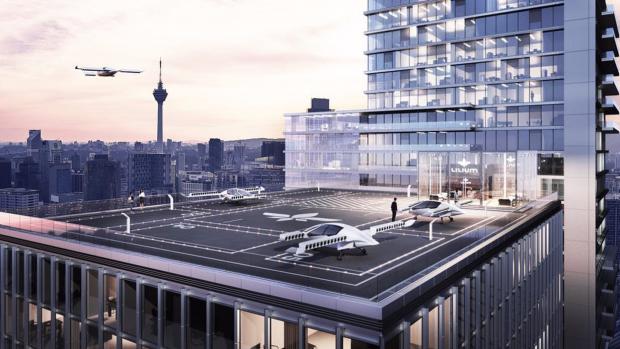
Breaking News
 Nancy Pelosi has officially announced her RETIREMENT at the end of her term, January 3, 2027.
Nancy Pelosi has officially announced her RETIREMENT at the end of her term, January 3, 2027.
 Omeed Malik: The Technocrat Muslim Billionaire Inside MAGA
Omeed Malik: The Technocrat Muslim Billionaire Inside MAGA
 Democrat-led government shutdown is now causing flight delays, threatening air traffic control,...
Democrat-led government shutdown is now causing flight delays, threatening air traffic control,...
Top Tech News
 HUGE 32kWh LiFePO4 DIY Battery w/ 628Ah Cells! 90 Minute Build
HUGE 32kWh LiFePO4 DIY Battery w/ 628Ah Cells! 90 Minute Build
 What Has Bitcoin Become 17 Years After Satoshi Nakamoto Published The Whitepaper?
What Has Bitcoin Become 17 Years After Satoshi Nakamoto Published The Whitepaper?
 Japan just injected artificial blood into a human. No blood type needed. No refrigeration.
Japan just injected artificial blood into a human. No blood type needed. No refrigeration.
 The 6 Best LLM Tools To Run Models Locally
The 6 Best LLM Tools To Run Models Locally
 Testing My First Sodium-Ion Solar Battery
Testing My First Sodium-Ion Solar Battery
 A man once paralyzed from the waist down now stands on his own, not with machines or wires,...
A man once paralyzed from the waist down now stands on his own, not with machines or wires,...
 Review: Thumb-sized thermal camera turns your phone into a smart tool
Review: Thumb-sized thermal camera turns your phone into a smart tool
 Army To Bring Nuclear Microreactors To Its Bases By 2028
Army To Bring Nuclear Microreactors To Its Bases By 2028
 Nissan Says It's On Track For Solid-State Batteries That Double EV Range By 2028
Nissan Says It's On Track For Solid-State Batteries That Double EV Range By 2028
Eight flying taxis that are so crazy, they just might work

Beyond the cool factor of personal flight, electric flying taxis would have a profound impact when it comes to society, the economy and the environment. By reshaping how people move around cities they have the potential to disrupt conventional transport systems like highways, trains and buses, put a dent in pollution around urban centers and make for much faster commutes, therefore making society more efficient and productive as a whole.
The examples we look at here all have their own unique designs, and are at different points in their development, but they all promise to essentially do the same thing, which is move passengers through the air from point A to point B at a push of the button. Thanks to electric propulsion and autonomous navigation systems, they would have no operating emissions and no pilot and would generate minimal noise.
If these kinds of aircraft were to become commonplace, it would be a fundamental shift in how cities function. Although plenty of skepticism still abounds, somebody who needs no convincing of either their potential or impending arrival is Vikas Prakash, a professor of mechanical and aerospace engineering at Case Western Reserve University.

 The Technocratic Dark State
The Technocratic Dark State Carbon based computers that run on iron
Carbon based computers that run on iron

